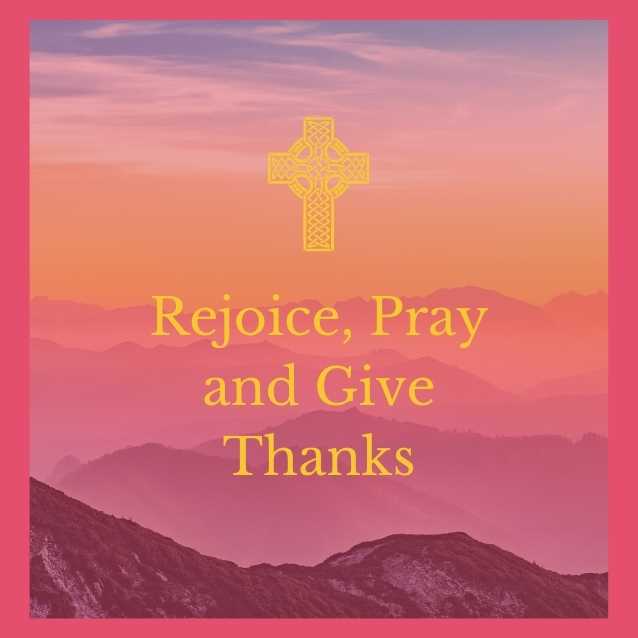Jeremiah 3:22 – A Prodigal’s Road to Redemption

Introduction
In the intricate tapestry of our spiritual journeys, we, as prodigal Christians, sometimes find ourselves far from our Creator’s embrace. Jeremiah 3:22 calls out to us, offering hope and guidance back to God’s loving arms. In this exploration, we’ll uncover the verse’s depth, examining its historical context and modern relevance.
As we journey through the scripture, we’ll consider various English translations and transport ourselves to Jeremiah’s era, understanding the turmoil of ancient Israel. But this is not just a study; it’s a quest for solace, redemption, and renewed faith. We’ll explore how this verse applies to our lives today, aiming to inspire you, fellow prodigal Christians, to return to the loving embrace of the One who has always awaited your homecoming. So, open your hearts to the transformative power of God’s Word, and let’s journey together on the road to redemption, guided by grace, forgiveness, and our Heavenly Father’s unwavering love.
Understanding Jeremiah 3:22
Comparison
NIV (New International Version)
“Return, faithless people; I will cure you of backsliding.” ‘Yes, we will come to you, for you are the Lord our God.'”
NASB (New American Standard Bible)
“Return, faithless sons, I will heal your faithlessness.” ‘Behold, we come to You, For You are the Lord our God.'”
ESV (English Standard Version)
“Return, O faithless children; I will heal your faithlessness.” ‘Behold, we come to you, for you are the Lord our God.'”
CSB (Christian Standard Bible)
“Return, you faithless children. I will heal your unfaithfulness.” ‘Here we are, coming to you, for you are the Lord our God.'”
Notable Translation Differences
While the heart of Jeremiah 3:22 remains consistent across these translations, there are some variations in wording. For instance, the NIV uses “cure you of backsliding,” the NASB uses “heal your faithlessness,” the ESV uses “heal your faithlessness,” and the CSB uses “heal your unfaithfulness.” These variations reflect differences in how the translators have chosen to convey the concept of healing or curing in response to faithlessness.
The phrase “Return, faithless people” in the NIV and “Return, faithless sons” in the NASB slightly differ in addressing the intended audience, using “people” and “sons,” respectively. The other translations use “children” or “you faithless children.” The Hebrew word used here is “ben,” which is usually translated as “son.” The modern English translations use “children” or “people” to indicate an inclusiveness in the text. These differences keep the intention of the text the same but point to the theological leanings of the translators.
The concluding part of the verse, ” ‘Behold, we come to you, for you are the Lord our God,'” remains consistent in meaning across the translations and expresses the commitment of the people to return to the Lord.
These translations maintain the central theme of God’s invitation for the faithless to return to Him. And His promise to heal their faithlessness, with minor nuances and wording differences.
Reason to Read in Multiple Translations
Reading a biblical passage in multiple translations is important for a well-rounded understanding of the scripture’s depth and nuance.
Different translations offer unique perspectives, interpretations, and linguistic nuances that can shed light on the original text’s intended meaning. By exploring various translations, readers understand the underlying message better.
This practice can help clarify potentially ambiguous passages. It also highlights varying theological traditions and provides fresh insight into the passage.
Moreover, reading in multiple translations encourages a deeper engagement with the Word of God. This fosters a more profound connection with the spiritual journey. And a broader appreciation of the diversity of interpretations within the Christian community.
It equips readers with a more comprehensive grasp of the scripture. This will enable them to draw closer to its timeless truths and wisdom.
Historical Context
The historical context of Jeremiah’s writings, including the exile of Israel, is essential for understanding the prophecies in the Book of Jeremiah.
Jeremiah lived and prophesied during one of the most tumultuous periods in ancient Israel’s history. His words are deeply rooted in the political, social, and religious dynamics of his time.
During Jeremiah’s lifetime, the fall of the Assyrian Empire had occurred. The Babylonian Empire, led by King Nebuchadnezzar, was emerging as the dominant force in the region. This rising Babylonian power posed a significant threat to the Kingdom of Judah, shaping the destiny of the Israelites.
King Josiah’s late 7th-century BCE religious reform aimed to restore faithfulness to the worship of Yahweh, centralizing worship in Jerusalem and eliminating idolatry.
However, his death in 609 BCE led to political instability. His successors, Jehoahaz and Jehoiakim, failed to continue his reforms, allowing idolatry and social injustice to resurface.
In 605 BCE, Babylon defeated Egypt, marking the start of the deportations of Judahites to Babylon. Jeremiah warned of the impending exile due to the people’s disobedience and idolatry.
Despite his pleas for repentance, Jerusalem eventually fell to the Babylonians in 586 BCE. This resulted in the destruction of the Temple and the Babylonian Captivity.
Jeremiah continued his ministry among the exiles in Babylon. He offered hope for the future and encouraged them to seek the well-being of their new city.
His writings reflect the anguish, despair, and hope of a people facing the consequences of their disobedience and idolatry and the geopolitical realities of their time.
Jeremiah was a prophet who delivered messages from God. His messages had four essential parts: warnings of judgment, calls for people to turn away from their sins, promises of restoration, and visions of a new covenant with God. His writings show how people can remain faithful to God even during difficult times in history.
Circumstances of Jeremiah 3:22
The context of Jeremiah 3:22 is crucial for its understanding within the Book of Jeremiah. Jeremiah commenced his prophetic ministry during the reign of King Josiah around 627 BCE. He was called to deliver messages of warning and hope.
It is against a backdrop of political upheaval, religious apostasy, and the looming threat of Babylon that Jeremiah 3:22 emerges. This verse is part of Jeremiah’s broader message. He implores the people to return to God, repent of their sins, and find healing and restoration. Jeremiah 3:22 sums up God’s willingness to forgive and heal the faithlessness of His people if they turn back to Him. It is a message of hope amid turmoil and serves as a call to return to the true faith of their ancestors and the covenant with God.
Key Themes
The Book of Jeremiah is a deep and intricate prophetic text. That deals with many important themes, which are crucial to grasp for a better understanding of Jeremiah 3:22. Several key themes in the book help us appreciate the significance of this verse within its broader message:
Covenant and Faithfulness
One of the central themes in Jeremiah is the concept of the covenant between God and His people. The Israelites had entered a covenant relationship with God by promising to obey His commandments and worship Him alone.
Yet, their persistent unfaithfulness, idolatry, and disobedience to the covenant led to God’s judgment. Jeremiah 3:22 reflects God’s willingness to heal and restore the covenant relationship, emphasizing the theme of faithfulness amidst human unfaithfulness.

Repentance and Restoration
Throughout the book, Jeremiah calls the people of Judah to repentance. He warns of the impending consequences of their sins, including the exile, but also holds out the promise of restoration if they return to God. Jeremiah 3:22 embodies this theme of repentance and the hope of restoration. The verse invites the faithless to return to God for healing and forgiveness.
Judgment and Exile
Due to their persistent disobedience, many of Jeremiah’s prophecies focus on the impending judgment and exile coming to Judah. The exile to Babylon was a catastrophic event in the history of Israel. And Jeremiah’s prophecies serve as both a warning and an explanation for the reasons behind this judgment.
Call to True Worship
Jeremiah confronts the people’s idolatry and false worship practices, showing the importance of worshiping the one true God. This theme of true worship is closely related to the call for repentance and the return to the covenant relationship.
The Prophet’s Personal Struggles
Jeremiah’s personal struggles as a prophet are also evident in the book. He faced opposition, rejection, and persecution for delivering God’s messages. His experiences provide a backdrop to the challenges of delivering difficult messages of judgment and the importance of remaining faithful to one’s calling.
The New Covenant
The concept of a renewed covenant with God is woven throughout the book. Jeremiah 3:22 hints at the possibility of this new covenant, as it speaks of God’s willingness to forgive and heal the faithless. This foreshadows the ultimate fulfillment of the New Covenant through Jesus Christ.
In summary, Jeremiah 3:22 is situated within a larger narrative of the Book of Jeremiah. It summarizes the central themes of the book. It offers a message of hope and healing to those who have strayed from God’s covenant, emphasizing God’s unwavering faithfulness even in the face of human unfaithfulness.
The Original Audience
The original audience for Jeremiah 3:22 was the people of Israel, specifically those living in the southern kingdom of Judah. Jeremiah’s prophetic ministry spanned several decades and occurred during a period of significant historical events. This period saw the Assyrian Empire’s decline and the Babylonian Empire’s ascent as a dominant regional power. In Judah, the Israelites faced political instability, external threats, and internal strife.
The people of Judah had a history of turning away from the worship of Yahweh and embracing idolatry. They had forsaken their covenant with God, leading to moral and ethical decline and social injustices within their society. King Josiah’s righteous reign had initially sparked religious reforms. But his untimely death saw a reversal of these reforms and a return to idolatry and corruption. Jeremiah’s prophetic messages warned of the impending consequences if the people did not repent and return to God in this challenging historical and spiritual context.
Given this context, Jeremiah 3:22 would have resonated deeply with the people of Israel. It offered a message of hope amid their waywardness and impending judgment. It reminded them that despite their unfaithfulness, God was willing to forgive and heal their faithlessness if they would turn back to Him.
Jeremiah’s prophecies called the people to repent and rekindle their commitment to the covenant with God. It urged them to acknowledge their sins, seek forgiveness, and return to a right relationship with their Creator. Jeremiah’s messages were an appeal to the Israelites to choose the path of reconciliation and restoration with God, even in the face of impending exile and hardship.
What it Meant to Them
The Israelites of Jeremiah’s time lived in a period filled with despair and the looming threat of Babylonian invasion and exile. Jeremiah’s consistent prophecies forewarned them of the consequences of their disobedience.
In this grim context, Jeremiah 3:22 emerged as a beacon of hope. Jeremiah offered the promise of healing and restoration, even in the face of their faithlessness. It encouraged self-reflection and repentance, acknowledging that their spiritual decline and idolatry lay at the heart of their troubles. The verse highlights God’s enduring love and mercy despite their unfaithfulness and impending judgment. This gave solace to people yearning for divine compassion during their hardships.
Jeremiah 3:22 was intricately tied to the concept of the covenant between God and Israel, reminding them of their broken covenant through idolatry and disobedience. It hinted at the possibility of renewing this covenant and reestablishing a close, loving relationship with the Lord.
It reinforces the significance of their covenantal heritage. The verse outlined a clear path to restoration. Urging the people to return to God, seek His forgiveness, and reaffirm their commitment to Him.
This message offered a tangible way forward in a time of uncertainty and impending exile. The message was not only for a select few but extended hope to all willing to return to God, emphasizing His desire for reconciliation with His people as a collective whole.
In sum, Jeremiah 3:22 would have resonated powerfully with the people of Israel as a message of hope, healing, and restoration in a time of crisis. It addressed their deepest needs and acknowledged their sins. It also revealed God’s boundless compassion and desire for reconciliation. This verse was an invitation for the Israelites to return to their covenantal relationship with God. And it offered a way forward even in the midst of adversity.
Challenges and Struggles
During Jeremiah’s time, the people of Israel were facing a multitude of daunting challenges and struggles.
The looming Babylonian threat, led by King Nebuchadnezzar, created intense anxiety for the Israelites. Babylon’s defeat of Egypt in 605 BCE extended its dominance over the region, intensifying the sense of impending doom. The sudden death of the righteous King Josiah plunged Judah into political instability.
His less faithful successors, Jehoahaz, Jehoiakim, and Jehoiachin, struggled to maintain Josiah’s reforms, adding to the people’s distress. Persistent idolatry and spiritual apostasy were central issues despite Josiah’s reform efforts. Social injustice and corrupt leadership compounded the moral decay and contributed to God’s judgment.
Jeremiah faced significant opposition and unpopularity. He confronted resistance, hostility, and persecution for his messages of judgment, exile, and the need for repentance.
His personal struggles mirrored the spiritual rebellion of the people. The prospect of exile to Babylon was deeply distressing. It involved physical upheaval, spiritual crisis, and the loss of national identity.
The Temple’s destruction and the people’s forced relocation made them wonder about their unique status as God’s chosen nation and their link to the land of Israel.
In summary, the people of Israel faced many challenges and struggles during Jeremiah’s time. These formidable challenges and crises created a tumultuous backdrop for Jeremiah’s prophetic ministry. It gave poignant context to the themes of judgment and restoration, making Jeremiah 3:22 a message of hope in the midst of profound adversity.
The Meaning of Jeremiah 3:22
Phrase by Phrase Breakdown
Return, O faithless children
Return
This word carries significant weight in the context of the verse. It is a call to repentance and turning back to God. The Israelites had strayed from their covenant with God, and this phrase invites them to come back to Him.
O faithless children
This phrase acknowledges the people’s unfaithfulness and rebellion. It highlights their waywardness and spiritual disobedience. Using “children” instead of “sons” indicates the translators’ theology. Either one is correct, as the Hebrew here can be translated either way without changing the overall meaning of the verse.
I will heal your faithlessness
I will heal
This part of the verse reveals the compassion and mercy of God. God offers healing despite the people’s faithlessness and the wounds caused by their sins. This offer of healing shows that God is willing to mend the broken relationship and restore the people.
Your faithlessness
This phrase underscores the central issue addressed in the verse. The people’s faithlessness had led to their spiritual deterioration and impending judgment. God’s promise to heal this faithlessness is the heart of the message, emphasizing His desire for reconciliation.
Significance as a Whole
Jeremiah 3:22 encapsulates the core themes of repentance, forgiveness, and restoration found throughout the book. It is an invitation for the faithless to return to God. They acknowledged their waywardness and promised healing and reconciliation. The verse reveals God’s unwavering commitment to His people. And His willingness to extend mercy and grace even in the face of their unfaithfulness. It offers a message of hope and renewal in the context of spiritual crisis and impending judgment. This text serves as a comforting declaration for the Israelites and all prodigal Christians on their journey back to faith.
Key Themes
The themes of repentance, forgiveness, and returning to God are central to the entire message of the Book of Jeremiah and the broader narrative of the Bible. Let’s explore these themes in more depth.
Repentance
Repentance is turning away from sin and wrongdoing. And toward God in a spirit of genuine remorse and a desire for change. It involves a change of heart, mind, and behavior.
Repentance is a recurring theme in Jeremiah’s prophecies. He calls the people of Judah to acknowledge their sins, their idolatry, and their unfaithfulness to God’s covenant. Sincere and transformational repentance is the first step toward reconciliation with God.
Repentance is the key that opens the door to forgiveness and restoration. It reflects a person’s recognition of their need for God and willingness to change their ways. Without repentance, there can be no genuine reconciliation with God.
Forgiveness
Forgiveness is pardoning someone for their offenses or sins. And it involves releasing feelings of resentment or vengeance.

Jeremiah’s message includes God’s willingness to forgive His people if they repent and return to Him. Despite the people’s faithlessness and the consequences they faced, God’s forgiveness is a central aspect of His relationship with Israel.
Forgiveness represents God’s grace and mercy. It demonstrates His desire to reconcile with His people despite their failures and sins. Forgiveness is how the broken relationship between humanity and God can be restored.
Returning to God
Returning to God means coming back to a close and obedient relationship with Him after a period of waywardness or spiritual distance.
The call to return to God is a recurring motif in Jeremiah’s prophecies. It is often coupled with the promise of healing and restoration. Jeremiah emphasizes that no matter how far the people have strayed, God is ready to receive them if they sincerely turn back to Him.
Returning to God reflects the possibility of reconciliation with God. It shows that even in the face of judgment and the consequences of sin, there is always a path back to God’s presence and favor. It underscores the idea that God eagerly embraces those seeking Him.
In Jeremiah 3:22, these themes converge. The verse calls the faithless children of Israel to return to God, repent of their waywardness, and seek healing for their faithlessness. It offers the assurance that God is willing to forgive and restore them. These themes hold timeless relevance for all individuals seeking to mend their relationship with God. And find forgiveness and restoration on their journey of faith.
Application for Modern Audiences
Hope for Prodigal’s
Jeremiah 3:22 begins with a compelling call, “Return, O faithless children.” Extending an invitation to prodigal Christians who have strayed from their faith. It recognizes their waywardness, validating their feelings of guilt and inadequacy.
This acknowledgment helps prodigals confront their shortcomings and the need for change. “I will heal your faithlessness” promises restoration and spiritual healing. This signifies God’s willingness to mend the wounds caused by faithlessness. It underscores God’s unwavering faithfulness. The aim is to provide comfort and hope to prodigal Christians and assure them that God’s love remains steadfast.
Jeremiah 3:22 provides a clear path to reconciliation with God. This gives them the opportunity to mend their relationship with Him, even after straying. It implies forgiveness, signifying God’s readiness to forgive sins. This assurance of forgiveness is a source of hope for prodigal Christians seeking reconciliation. Ultimately, the verse conveys a message of grace. It is essential to remind them that their return to God is founded on the basis of God’s unconditional love, grace, and mercy, which gives hope for redemption and a fresh start.
In sum, Jeremiah 3:22 offers hope to prodigal Christians by extending a compassionate invitation to return. If they acknowledge their struggles, promising healing and forgiveness, and highlighting God’s unwavering faithfulness and grace. It provides the assurance that no matter how far one has strayed, the path to reconciliation with God is open. And there is always hope for restoration and renewal in one’s faith journey.
Practical Steps for Application
Applying the message of Jeremiah 3:22 to modern life involves embracing the themes of repentance, forgiveness, and returning to God in practical ways. Here are some practical steps that modern readers can take to apply the verse’s message in their lives:
- Self-Reflection and Acknowledgment – Take time for self-reflection and acknowledge any areas of faithlessness or spiritual distance. Be honest with yourself about doubts, struggles, or areas where you’ve strayed from your faith.
- Turn to God in Prayer – Begin a conversation with God through prayer. Confess your faithlessness and express your desire to return to Him. Pour out your heart to God, sharing your struggles, doubts, and concerns.
- Seek Forgiveness – Embrace God’s promise of forgiveness. Believe that God is ready to forgive your sins and failures. Specifically, confess any known sins or wrongdoings and ask for God’s forgiveness.
- Repentance and Change – Repentance involves not only acknowledging sin but also making a commitment to change. Identify areas where you need to make changes in your life to align with your faith. Create a plan for personal growth and spiritual renewal. This could include studying the Bible, seeking accountability from a mentor or friend, or addressing specific areas of sin or temptation.
- Reconnect with Scripture – Dive into the Scriptures to deepen your understanding of God’s character, His promises, and His desires for your life. Explore passages that emphasize God’s forgiveness and restoration, such as Psalm 51 or Luke 15 (the parable of the prodigal son).
- Community and Support – Engage with a faith community or a small group where you can find support, encouragement, and accountability. Share your journey with trusted friends or mentors who can provide guidance and prayer support.
- Practice Gratitude – Cultivate an attitude of gratitude for God’s grace and forgiveness. Regularly thank God for His mercy and love. Maintain a gratitude journal to record moments of spiritual growth and God’s work in your life.
- Service and Acts of Love – Actively demonstrate your commitment to God by serving others and showing love and compassion. Engage in acts of kindness, charity, or volunteering as a way to express your faith in action.
- Seek Spiritual Guidance – Consider seeking guidance from a pastor, spiritual counselor, or mentor who can provide personalized support and direction on your faith journey.
- Patience and Perseverance – Understand that the process of returning to God and experiencing healing may take time. Be patient with yourself and trust in God’s timing. Persevere in your faith, even during moments of doubt or difficulty, knowing that God is with you on the journey.
Jeremiah 3:22 offers a message of hope and renewal. But applying its message requires intentional effort and a genuine desire to draw closer to God. By taking these steps, modern readers can experience the transformative power of repentance, forgiveness, and returning to God in their lives.
Modern Stories of Redemption and Restoration
There are numerous examples in the Bible of people who failed miserably and were restored to God, including Peter, Paul, David, Moses, etc. But there are also modern people who have experienced the same level of repentance and restoration.
Chuck Colson
Chuck Colson was a prominent political figure and served as a special counsel to President Richard Nixon during the Watergate scandal. He was involved in political activities that led to his conviction and imprisonment for obstruction of justice.
While in prison, Colson had a profound spiritual transformation. He became a born-again Christian and experienced a deep sense of remorse for his actions. He started Prison Fellowship, a Christian ministry focused on prisoners and their families.
Colson’s story exemplifies personal redemption and the ability to turn a life around through faith. He used his experience to impact the lives of countless inmates and their families.
John Newton
John Newton was a slave trader in the 18th century who was involved in the transatlantic slave trade. After a series of life-altering events and a near-death experience at sea, he had a radical conversion to Christianity.
Newton eventually became an Anglican clergyman and hymn writer, penning the beloved hymn “Amazing Grace.” He used his own past as a testament to the power of God’s grace and forgiveness.
His story reflects a powerful journey from a life of moral darkness to one of spiritual light and redemption.
These people demonstrate that, regardless of one’s past actions or mistakes, a change of heart and a commitment to faith can lead to a new and purposeful life. These stories offer hope and encouragement to those who may be on their own journey toward redemption and restoration.
Conclusion
In this blog post, we’ve explored the message of Jeremiah 3:22. Emphasizing its significance within the Book of Jeremiah and its application to prodigal Christians.
We’ve discussed themes of repentance, forgiveness, and returning to God. This verse serves as a beacon of hope and healing for those who have strayed from their faith. The relevance of Jeremiah 3:22 is timeless, offering solace and encouragement to prodigal Christians and reminding them of God’s unwavering love and grace. As we conclude, I encourage you to reflect on your own faith journey, recognizing moments of doubt or distance from God. Jeremiah 3:22 provides a path to reconciliation, healing, and renewal. God is inviting you to return with a repentant heart and have faith in God’s never-ending love—inspiring strength and hope as you continue your unique faith journey.







